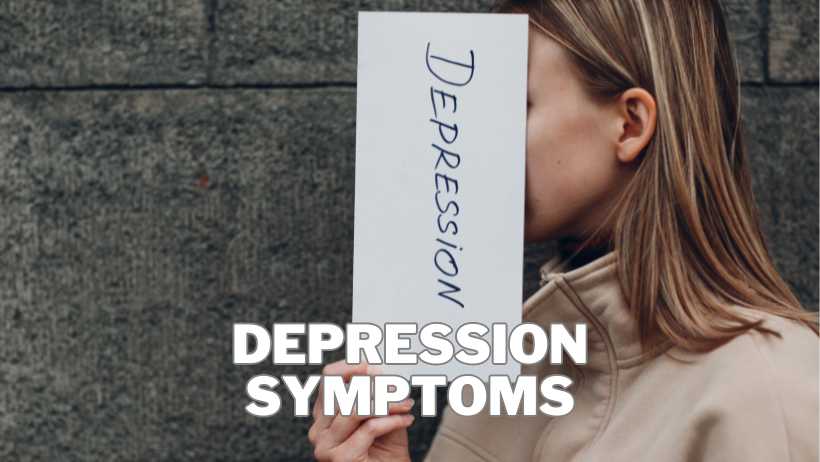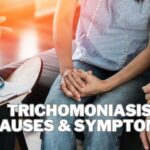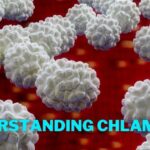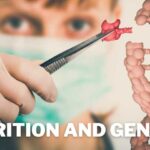
Understanding Depression: Symptoms, Causes, and Treatment Options is an informative article providing a comprehensive overview of depression, including symptoms, causes, and treatment options. Learn how depression can interfere with daily life and why seeking help is crucial.
Understanding Depression: Symptoms, Causes, and Treatment Options is an informative article that sheds light on this prevalent mood disorder which affects approximately 18.5% of American adults. Depicting depression as more than just feelings of sadness, the article describes how it can interfere with daily activities, work, relationships, and even chronic health conditions.
From the various symptoms experienced by individuals of different age groups and genders to the possible causes and risk factors, the article provides a comprehensive overview of depression. It also shares valuable information about the wide range of treatment options available, including medications, psychotherapy, and light therapy.
Above all, the article emphasizes the importance of seeking help and offers immediate assistance through suicide prevention hotlines.
Understanding Depression
Depression is a mood disorder that can have a significant impact on your life, interfering with daily activities and causing feelings of sadness, loss, or anger. It is estimated that approximately 18.5% of American adults experience depression at some point in their lives. It is important to understand the definition, prevalence, and impact of depression in order to recognize the symptoms and seek appropriate treatment.
Definition of Depression
Depression is characterized by persistent feelings of sadness, hopelessness, or a loss of interest in activities that you once enjoyed. It can affect your mood, thoughts, and behavior, leading to a decrease in overall functioning. Depression can manifest differently in each individual, but common symptoms include a lack of energy, changes in appetite and sleep patterns, difficulty concentrating, physical pain, and even thoughts of death or suicide.
Prevalence of Depression
Depression is a common mental health disorder, affecting a significant portion of the population. Studies have shown that approximately 18.5% of American adults experience depression in their lifetime. It is important to understand the scope of the issue in order to address it effectively and provide the necessary support and resources.
Difference between Depression and Grief
Depression is often confused with grief, as both involve feelings of sadness and loss. However, there are distinct differences between the two. Grief is typically a response to a specific loss, such as the death of a loved one, whereas depression may not have an identifiable cause.
While grief involves feelings of sadness and longing, depression often involves self-loathing or a loss of self-esteem. It is important to differentiate between the two in order to provide appropriate support and treatment.
Impact of Depression on Daily Life
Depression can have a profound impact on your daily life, affecting various aspects of your functioning. It can interfere with work, relationships, and overall quality of life.
Additionally, it can exacerbate chronic health conditions such as arthritis, asthma, cardiovascular disease, cancer, diabetes, and obesity. Recognizing the impact of depression is crucial in seeking help and finding effective treatment options.
Symptoms of Depression
Recognizing the symptoms of depression is key to understanding whether you or someone you know may be struggling with the disorder. While symptoms can vary among individuals, there are common signs to look out for.
Feelings of Sadness
One of the most significant symptoms of depression is persistent feelings of sadness or emptiness. You may experience overwhelming sadness that does not seem to go away, regardless of external circumstances. This sadness can be intense, affecting your ability to engage in daily activities or enjoy things that you used to find pleasurable.
Hopelessness and Loss of Interest
Feelings of hopelessness and a loss of interest in activities that once brought you joy are common signs of depression. You may find yourself lacking motivation or unable to engage in activities that used to provide meaning or fulfillment. This loss of interest can contribute to a sense of emptiness and may lead to social isolation.
Fatigue and Difficulty Concentrating
Depression can cause significant fatigue and a decrease in energy levels. You may find yourself constantly feeling tired, even after a full night’s sleep. This fatigue can make it difficult to concentrate or perform daily tasks, affecting your work or personal life.
Changes in Sleep and Appetite
Depression is often associated with changes in sleep patterns and appetite. You may experience insomnia or find it difficult to stay asleep throughout the night. On the other hand, some individuals may experience excessive sleeping and find it challenging to get out of bed in the morning. Similarly, changes in appetite can occur, leading to significant weight loss or gain.
Physical Pain and Thoughts of Death
Depression can manifest physically, often causing various aches and pains. You may experience headaches, stomachaches, or muscle tension without any underlying medical condition. Additionally, it is not uncommon for individuals with depression to have thoughts of death or suicide. If you or someone you know is having thoughts of self-harm, it is vital to seek immediate help.
Depression Across Different Groups
Depression can affect individuals of all ages and genders. However, it is important to note that the presentation and symptoms of depression may vary depending on the group.
Depression in Males
Depression in males can often go unrecognized or undiagnosed due to societal expectations and stigmas surrounding mental health. Men may be less likely to express their emotions or seek help, resulting in a higher rate of undiagnosed depression. Additionally, male depression can manifest through anger, irritability, or risky behavior rather than traditional signs of sadness.
Depression in Females
Females are more commonly diagnosed with depression compared to males. Hormonal factors, such as changes during puberty, pregnancy, and menopause, can contribute to the higher prevalence of depression in women. Additionally, societal pressures and gender roles can impact mental health. It is important for women to seek support and treatment if they are experiencing symptoms of depression.
Depression in Teens
Depression in teenagers can be particularly challenging, as it may be perceived as a normal part of adolescence. However, it is important to differentiate between the normal ups and downs of teenage life and persistent depression. Teenagers may exhibit symptoms such as irritability, withdrawal from social activities, changes in academic performance, and increased risk-taking behaviors.
Depression in Children
While depression is often associated with adults, it can also affect children. Symptoms of depression in children can differ from those in adults. Children may exhibit irritability, clinginess, physical complaints without a clear cause, or a decrease in school performance. It is crucial for parents, teachers, and healthcare providers to recognize these signs and provide appropriate support.
Causes of Depression
The causes of depression are multifaceted, involving a combination of biological, psychological, and environmental factors. While the exact cause of depression may vary among individuals, several key factors have been identified.
Brain Chemistry Imbalances
One possible cause of depression is an imbalance in brain chemistry. Neurotransmitters, such as serotonin, dopamine, and norepinephrine, play a crucial role in regulating mood. When there is an imbalance in these neurotransmitters, it can lead to symptoms of depression.
Hormonal Factors
Hormonal changes can contribute to the development of depression. Fluctuations in hormone levels, particularly during puberty, pregnancy, and menopause, can impact mood regulation. This hormonal imbalance can make individuals more susceptible to depression.
Family History and Genetic Predisposition
Having a family history of depression increases the likelihood of developing the disorder. Genetic factors can play a role in the development of depression, making certain individuals more genetically predisposed to experiencing the condition.
Early Childhood Trauma
Experiencing trauma or adverse childhood experiences can have long-lasting effects on mental health. Childhood trauma, such as abuse or neglect, can increase the risk of developing depression later in life. The impact of early childhood experiences on brain development and coping mechanisms may contribute to the development of depression.
Brain Structure and Function
Research has indicated that individuals with depression may have differences in brain structure and function compared to those without the disorder. These structural and functional changes can affect mood regulation and contribute to the development of depression.
Medical Conditions and Depression
Chronic health conditions, such as arthritis, asthma, cardiovascular disease, cancer, diabetes, and obesity, can increase the risk of developing depression. Dealing with a medical illness can be emotionally challenging, leading to feelings of sadness, hopelessness, and a decrease in overall functioning.
Substance Use and Depression
Substance use, including alcohol and drug abuse, can exacerbate or contribute to the development of depression. Substance misuse can disrupt brain chemistry and increase the risk of depressive symptoms.
Chronic Pain and Depression
Chronic pain conditions, such as fibromyalgia or arthritis, can lead to the development of depression. Dealing with constant pain can be emotionally taxing and impact overall well-being. The relationship between chronic pain and depression is complex and requires a comprehensive approach to treatment.
Risk Factors for Depression
Understanding the risk factors associated with depression can help identify individuals who may be more susceptible to developing the disorder. While depression can affect anyone, certain factors increase the likelihood of experiencing depression.
Sex and Depression
Females are more likely to experience depression compared to males. This may be due to hormonal factors, societal pressures, or differences in coping mechanisms. Understanding the gender-specific risk factors for depression can help with early detection and timely intervention.
Genetics and Depression
Having a family history of depression increases the likelihood of developing the disorder. Genetic factors play a role in determining an individual’s susceptibility to depression. Identifying individuals with a family history of depression can help with early recognition and intervention.
Socioeconomic Status and Depression
Socioeconomic status can influence an individual’s risk of depression. Factors such as low income, unemployment, or lack of access to resources and support can contribute to the development of depression. Addressing socioeconomic disparities is crucial in preventing and treating depression.
Medications and Depression
Certain medications, such as corticosteroids, opioids, and some anticonvulsants, have been linked to an increased risk of depression. It is important to consider the potential side effects of medications and monitor for signs of depression when using these drugs.
Vitamin D Deficiency and Depression
Research has suggested a potential link between vitamin D deficiency and an increased risk of depression. Adequate levels of vitamin D are important for brain health and regulating mood. Ensuring sufficient vitamin D levels may help reduce the risk of depression.
Gender Identity and Depression
Individuals who do not identify with the gender assigned at birth may be more at risk for depression. Transgender individuals may face discrimination, social exclusion, and difficulties accessing appropriate healthcare, contributing to higher rates of depression. Providing support and understanding for individuals with diverse gender identities is essential in addressing mental health needs.
Substance Misuse and Depression
Substance misuse and addiction can increase the risk of developing depression. The cycle of substance abuse and the resulting negative consequences can contribute to feelings of hopelessness, sadness, and a decrease in overall functioning.
Medical Illnesses and Depression
Having a medical illness or chronic health condition can increase the risk of developing depression. Dealing with the emotional and physical challenges of a medical illness can lead to the onset or exacerbation of depressive symptoms.
Treatment Options for Depression
There are various treatment options available for individuals struggling with depression. It is important to work with a healthcare professional to develop an individualized treatment plan that suits your needs.
Medications for Depression
Medications can be an effective treatment option for depression. Several classes of antidepressants are available, including selective serotonin reuptake inhibitors (SSRIs), serotonin-norepinephrine reuptake inhibitors (SNRIs), tricyclic and tetracyclic antidepressants, atypical antidepressants, monoamine oxidase inhibitors (MAOIs), and N-methyl-D-aspartate (NMDA) antagonists. These medications work by targeting different neurotransmitters in the brain to alleviate symptoms of depression.
Psychotherapy for Depression
Psychotherapy, also known as talk therapy, is an essential component of depression treatment. There are different types of psychotherapy that have been shown to be effective in treating depression.
Cognitive Behavioral Therapy
Cognitive Behavioral Therapy (CBT) is a widely used form of therapy for individuals with depression. It focuses on identifying and changing negative thought patterns and behaviors that contribute to depressive symptoms. CBT helps individuals develop healthier coping mechanisms and create positive changes in their lives.
Dialectical Behavior Therapy
Dialectical Behavior Therapy (DBT) is a type of therapy that is particularly useful for individuals with depression who also experience difficulties with emotion regulation or self-destructive behaviors. DBT teaches skills to manage emotions, improve interpersonal relationships, and increase mindfulness.
Psychodynamic Therapy
Psychodynamic therapy explores the underlying causes and unresolved conflicts that may contribute to depression. By gaining insight into these factors, individuals can develop a better understanding of themselves and work towards resolving past issues.
Light Therapy for Seasonal Affective Disorder
Light therapy is a specific treatment option for individuals with seasonal affective disorder (SAD), a type of depression that typically occurs during specific seasons, most commonly in the winter months. Light therapy involves exposure to bright light that mimics natural sunlight, which can help regulate mood and alleviate symptoms.
Seeking Help for Depression
Recognizing the importance of seeking help for depression is crucial in addressing the disorder effectively. Depression is a treatable condition, and support is available for those who are struggling.
Importance of Seeking Help
Seeking help for depression is an important step towards recovery. The symptoms of depression can significantly impact your daily life and overall well-being. It is essential to reach out to a healthcare professional who can accurately diagnose the condition and guide you towards appropriate treatment options.
Available Resources and Assistance
Numerous resources are available to support individuals with depression. Alongside professional help, support groups, online forums, and educational materials can provide additional guidance and reassurance. It is important to take advantage of these resources and build a support network.
Suicide Prevention Hotlines
If you or someone you know is experiencing thoughts of self-harm or suicide, it is crucial to seek immediate assistance. Suicide prevention hotlines are available 24/7 to provide support, guidance, and intervention in times of crisis. These helplines are staffed by trained professionals who can offer immediate assistance and connect individuals to appropriate resources.
In conclusion, understanding depression and its various aspects is key to recognizing the symptoms, seeking appropriate help, and finding effective treatment. Depression can impact different groups in unique ways, and the causes and risk factors can vary among individuals.
Treatment options, including medications, psychotherapy, and light therapy, are available to support individuals on their journey towards recovery. Remember, reaching out for help and utilizing available resources is essential in addressing depression and promoting mental well-being.










